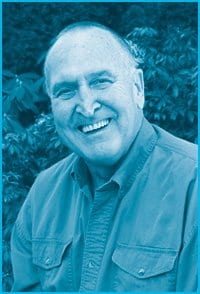“I don’t have an answer,” says 70-year-old Ron Strandberg, looking at the street kids living in the Davie Village. “If I did, I’d work at fixing it.”
Strandberg is not the only one searching for answers. But, despite a number of surveys, studies and suggestions, it seems little is being done to address the growing number of street people in the Village.
What does Strandberg think is needed? “God I wish I had an answer to that question. I don’t know. I’m frustrated by the bureaucracy of programs,” he adds.
The vice-president of the Davie St Community Policing Centre (CPC) recently attended a meeting of social service agencies that deal with street people. He left unimpressed.
“I looked around the table and there were 25 very well-paid people who were not coordinating their programs and all had their little fiefdoms. I was quite upset by that-that the fiefdom was more important than the solution.”
The police aren’t helping much either, he says. “The police solution was to send the street flusher down at 4 am, which solves nothing. Well, maybe the store owners would be happier with that. I don’t know. I’m not very happy with that.”
These days, the retired interior designer is feeling a “little more sympathetic” towards the service agencies, having attended more of their meetings. “I’m trying to understand how they operate,” he says. “I want to be familiar with their programs, so that when we deal with the street people we understand what services are available to them.
“And I’m dying to get a proper survey done,” he notes.
“We did some surveys of the street people a couple of years ago but realized we really didn’t know what we were doing,” Strandberg explains. “We interviewed about 30 street kids and I wasn’t totally happy with the information we were getting. I really felt that we weren’t asking the right questions.”
He points to another survey, this one conducted by the city, focussing on 23 street youth on Davie and Denman Sts.
Some of the youth surveyed said they wanted to go on welfare but weren’t eligible, he recalls. “But is welfare the answer?” he asks out loud. “I’m not sure.
“And a hostel is an institution and they’ll have no part of that,” he continues. “They don’t like going to some of the existing facilities because they get hit on by the older people.
“Some of them are doing it for kicks at the moment,” he adds. “Maybe they’re runaways, maybe they’re rebellious, but they could go back.”
One thing the survey showed, he notes, is that the Davie Village street people “were younger, less entrenched. And they may be into pot and beer but they’re not particularly into heroin and cocaine.”
In other words, Strandberg continues, “they’re a little newer to the street.” Newer, for example, than the people living on Granville St.
“And so it became even more urgent, in my mind, to understand what they’re about.”
Born on a farm in Camrose, Alberta, Strandberg learned young that if you’re not happy with something, you need to act to change it.
Since joining the Davie CPC’s board of directors in June 2002, Strandberg has helped revamp the organization to a standard he’s very proud of.
He says he first discovered “how dysfunctional” the CPC was when he started volunteering there in the 1990s.
When the community cried out for safer streets after Aaron Webster’s fatal gaybashing in 2001, Strandberg talked to Little Sister’s co-owner Jim Deva. “We put our heads together and got ourselves elected to the board and spent a year learning what was going on. We didn’t exactly give them an easy time but we didn’t push it a lot.”
Then the former, six-term president resigned, Strandberg recalls. “Jim moved up to president and then we got rolling.”
Strandberg’s criticism of the prior board centres around its allocation of funding. “They weren’t doing anything in the community,” he charges. “We had a $20,000 budget and they would not spend more than $10,000 and it meant that the programs weren’t being funded and nobody had any money.”
Now, the office has 130 volunteers and a more diverse board of directors.
“There are three women, who I assume are straight,” Strandberg smiles. “We have three straight guys and we have three gay guys.”
He has also pulled in some of the “live wires” from the retired community, he notes. “I’m trying to make sure that we’re as diverse and as representative as we can possibly be.
“One of my big pushes is to get more of the gay community involved in community policing,” he notes. “I think that with more involvement, we have a stronger voice with the police department.”
Strandberg notes that the board’s relationship with the staff at the Davie CPC is amicable, but “they don’t always appreciate our input. They have their agenda and sometimes ours is slightly different and we point out the differences and not always is it appreciated.”
Still, he says, he enjoys working with the CPC. “If I didn’t, I would wander off and do something else. That’s one of the joys of being retired,” he chuckles.
“I do get a great deal of satisfaction out of organizing and getting a project rolling, especially when I see a need,” he continues. “I make lots of mistakes. I get lots of criticism because I’m pushing the agenda -gay or straight or organizational or whatever. I seem to get myself into all this trouble because I’m stepping on people’s toes sometimes because I see a need.
“I find it interesting, I find it stimulating. I could play bridge all day but I don’t get any satisfaction out of that.” Strandberg grins.

 Why you can trust Xtra
Why you can trust Xtra


